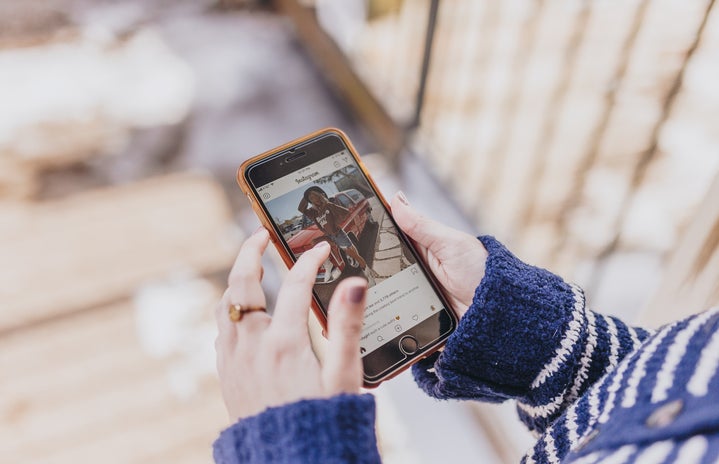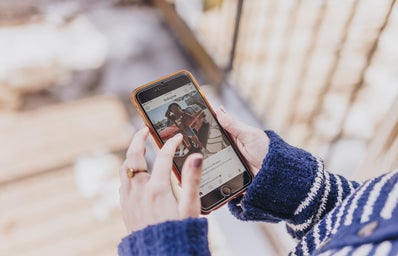Frenemy is an oxymoron that refers to being friendly to someone (or something in this case) despite having a dislike or rivalry for or with them. Most of you probably already know this, but maybe you’re like me and you have trouble categorizing things as frenemy status. It seems like most times it’s either friend or enemy. Your friend that you met in your freshman year of college who you’re graduating with already. That’s easy. They’re a friend. That kid who took your spot in the musical and who spread rumors about you that weren’t true. That may be a hypothetical enemy for someone. It’s usually pretty easy to distinguish from.
Now, where would you put social media? Is social media your friend or enemy? It seems people are either arguing it’s the best thing ever invented (i.e., a friend) or that it’s ruining everything (i.e., the enemy). But why can’t it be both? To me, it seems a lot of people do enjoy being on social media, there are just aspects of it that cause them to feel like they need a break from it from time to time. I personally have gone on a mental health break from social media, and I’m not alone in this. A study surveyed 790 American teens about their social media habits, and results showed that 58% of teens have taken a break from at least one social media platform. The key to these breaks though was implicit motivation. It was the teens themselves who wanted to take the break voluntarily (65%) that felt more positive about their time away. Those who were forced felt more anxious and disconnected. What this shows is that we should not be telling young adults they have to leave social media in order to feel positive about themselves and others. We should be giving them the benefits in addition to the costs, and then letting them decide for themselves if and when they want to take a break.
Also, in a study from 2020, people who deactivated Facebook for a month reported lower depression and anxiety, and higher happiness and satisfaction. It seems social media itself doesn’t impact mental health, but the time used on it does.
The fact there are good aspects and bad aspects is the reason why I say social media is my frenemy. It’s my friend sometimes, and my enemy other times. 33.7% of 18- to 25-year-olds report having a mental illness negatively impacted by social media. I struggle with body image, and so seeing edited or photoshopped photos of the thin appearance ideal makes me feel bad about myself and makes me think that everyone else looks better than me. I can openly admit that I have scrolled through photos and zoomed in on photos to compare the stomach of someone else to my own. Research supports that higher social media use leads to “body surveillance” which is exactly as I just described, monitoring your body and becoming judgmental of it.
Instead of deleting social media altogether, I started following positive body image influencers and made my feed more positive. For example, I follow @breeelenehan who posts the same picture side-by-side, showing the version of her she would post, and the one she wouldn’t. She shows her natural self, showing that things like stomach rolls are totally normal and not something to be ashamed of. Seeing her in my feed always reminds me not to be so hard on myself.
I suggest taking whatever part of social media that is harming you and turning it into something that can help you. 70% of adolescent girls of color find race-affirming content on social media platforms and report feeling more accepted (58%), supported (67%), creative (71%), and connected with friends (80%). That’s not to say there isn’t content that can be non-affirming, but unfollowing that content and putting your time and energy into following profiles that are accepting and more positive, can mean the difference between social media hurting your mental health and helping it. It’s all about how you use social media; social media isn’t a snake, but there are snakes within it that are avoidable.
In conclusion, it’s up to you whether social media is an enemy for you or a friend, or both. You are the one who can choose what parts of it make you feel good and which parts don’t. You have the power to adjust your social media and surround yourself with the type of posts that help you. You don’t have any obligation to be on it except for when you want to. You’re allowed to take a break (if you want). Social media is going to be around, but it’s you who creates your own social media experience.


